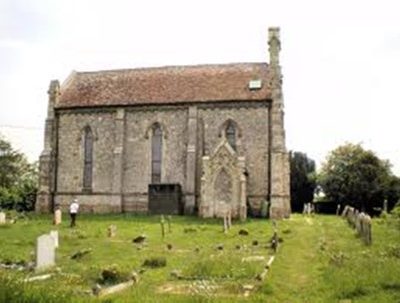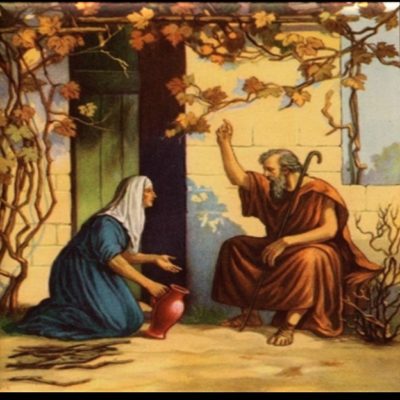Honey

Honey used as a sweet savor for the disobedient. Honey was used as a food for eating. Honey was used to describe the land the LORD had given flowing with milk and honey. Honey used also used symbolically.
Honey used as a Sweet Savor for the Disobedient:
The disobedient took the bread the LORD God had given His people and the fine flour, and oil, and honey, was set before them for a sweet savor. (Ezekiel16:19).
No meat offering, which you shall bring unto the LORD, shall be made with leaven: for you shall burn no leaven, nor any honey, in any offering of the LORD made by fire. (Leviticus2:11).
Honey used for eating:
Manna was like coriander seed, white; and the taste of it was like wafers that were made with honey. (Exodus 16:31).
Honey was to be found in crevices of rocks and on trees. (Deuteronomy 32:13).
A city east of Bethel, land came to a wood; and there was honey upon the ground. The honey dropped; but no man put his hand to his mouth: for the people feared the oath that King Saul gave to the LORD “Cursed be the man that eats any food until evening that I may be avenged on mine enemies.” (1 Samuel 14:24). So none of the people tasted any food. Jonathan did taste a little of the honey. (1 Samuel 14:24-43).
David, and his people that were with him were given honey for them to eat. Because the people were hungry, weary, and thirsty in the wilderness. (2 Samuel 17:29).
Proverbs tells us to eat honey, because it is good, and the honeycomb is sweet to the taste. (Proverbs 24:13). It warns to only eat as much as is sufficient for you, unless you be filled and vomit it. (Proverbs 25:16). It is not good to eat much honey: so for men to search their own glory is not glory. (Proverbs 25:27).
John the Baptist had raiment of camel’s hair, and a leathern girdle about his loins; and his meals was of locusts and wild honey. (Matthew 3:4; Mark 1:6).
Land flowing with Honey
The LORD God came down to deliver the children of Israel out of the hand of the Egyptians, and to bring them up out of that land unto a good land and a large, unto a land flowing with milk and honey; unto the place of the Canaanites, and the Hittites, and the Amorites, and the Perizzites, and the Hivites, and the Jebusites. (Exodus 3:8). The LORD God brought them out of the affliction of Egypt unto the land of the Canaanites, and the Hittites, and the Amorites, and the Perizzites, and the Hivites, and the Jebusites, unto a land flowing with milk and honey. (Exodus 3:17). The LORD God swore unto their fathers to give them, a land flowing with milk and honey, that they shall keep the observance of Passover. (Exodus 13:5). Unto a land flowing with milk and honey: for I will not go up in the midst of them; for they art a stiff-necked people: lest the LORD God consumes them in the way. (Exodus 33:3).
The LORD God said the Children of Israel shall inherit their land, and He will give it unto them to possess it, a land that flows with milk and honey: I am the LORD your God, which have separated you from other people. (Leviticus 20:24).
Hear therefore, O Israel, and observe to do it; the observance of the Passover, that it may be well with you, and that you may increase mightily, as the LORD God of their fathers had promised them, in the land that flows with milk and honey. (Deuteronomy 6:3). A land of wheat, and barley, and vines, and fig trees, and pomegranates; a land of oil olive, and honey. (Deuteronomy 8:8). That the LORD may prolong your days in the land, which the LORD swore unto your fathers to give unto them and to their seed, a land that flows with milk and honey. (Deuteronomy 11:9).Moses asked the LORD God to look down from His holy habitation, from heaven, and bless His people Israel, and the land which He had given them, as He swore unto their fathers, a land that flows with milk and honey. (Deuteronomy 26:15).
The children of Israel walked forty years in the wilderness, till all the people that were men of war, which came out of Egypt, were consumed, because they obeyed not the voice of the LORD: unto whom the LORD swore that he would not show them the land, which the LORD swore unto their fathers that he would give us, a land that flowed with milk and honey. (Joshua 5:6).
Rabshakeh the king of Assyria stood and cried with a loud voice in the Jews’ language, and spoke, warning them to not hear the words of Hezekiah. Rabshakeh wanted them to make an agreement with him not with Hezekiah or the LORD God. Until he come and take them away to a land like your own land, a land of corn and wine, a land of bread and vineyards, a land of oil olive and of honey, that they may live, and not die: and hearken not unto Hezekiah, when he persuaded them, saying, The LORD will deliver us. (2 Kings 18:28- 32).
Honey used as trade:
Judah, and the land of Israel, they were merchants: they traded in thy market wheat of Minnith, and Pannag, and honey, and oil, and balm. (Ezekiel 27:17).
Honey used symbolically:
Samson went down to Timnath, and found a woman he wanted to marry from among the Philistines. There encountered a lion when he and his parents returned to claim his wife. Samson killed the lion with his bare hands with the help of the Spirit of the LORD. They returned to see the woman then returned back to the carcass of the lion was filled with swarm of bees and honey in the carcass of the lion. Samson ate the honey with his hand from out of the carcass of the lion. (Judges 14:1-9). The father of Samson went down unto the woman: and Samson made there a feast; for so used the young men to do. The Philistines brought thirty companions to be with Samson. Samson said unto them, I will now put forth a riddle unto you: if you can certainly declare it me within the seven days of the feast, and find it out, then I will give you thirty sheets and thirty change of garments. The riddle of Samson was “Out of the eater came forth meat, and out of the strong came forth sweetness.” (Judges 14:4). The riddle was of the lion and the honey whose answer would not have been guessed by his companions if it was not for the wife of Samson telling them. (Judges 14:10-18).
Lord himself shall give a sign of the birth of Jesus Christ to the prophet Isaiah: “Behold, a virgin shall conceive, and bear a son, and shall call his name Immanuel. Butter and honey shall he eat, that he may know to refuse the evil, and choose the good.” (Isaiah 7:14-15).
The LORD God told Ezekiel, Son of man, cause thy belly to eat, and fill thy bowels with this roll that I give thee. Then did I eat it; and it was in my mouth as honey for sweetness. (Ezekiel 3:3). The eating of the scroll was a symbol of his acceptance of the call and revelation of the LORD God.
There was a voice which John heard from heaven which spoke to John and instructed him to “Go and take the little book which is open in the hand of the angel which stand upon the sea and upon the earth.” (Revelation 10:8). John took the little book and he ate it and it was in his mouth sweet as honey; as soon as he had eaten it his belly was bitter. (Revelation 10:8-10).
The fear of the LORD is clean, enduring forever: the judgments of the LORD are true and righteous altogether. More to be desired are they than gold, yea, than much fine gold: sweeter also than honey and the honeycomb. (Psalms 9: 9-10).
Cite Article Source
MLA Style Citation:
Holstein, Joanne “Honey Miscellaneous:.” Becker Bible Studies Library Feb 2015.< https://guidedbiblestudies.com/?p=2385,>.
APA Style Citation:
Holstein, Joanne (2015, February) “Honey Miscellaneous:.” Becker Bible Studies Library. Retrieved from https://guidedbiblestudies.com/?p=2385,.
Chicago Style Citation:
Holstein, Joanne (2015) “Honey Miscellaneous:.” Becker Bible Studies Library (February), https://guidedbiblestudies.com/?p=2385, (accessed).


